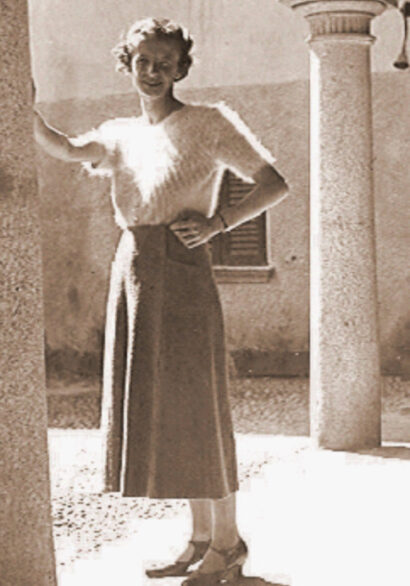Snowfield
Snowfield I was in the brightness of day that lives beyond the fir trees, I walked on fields and mountains of light — I crossed dead lakes — the captive waves whispered a secret song to me — I passed over white banks, called the dormant gentians by name — I dreamed in the snow of an immense buried city of flowers — I was on the mountains like a bristling flower — and I looked at the rocks, the high cliffs though seas of wind and sang to myself of a distant summer, which, with its bitter rhododendrons blazed in my blood — February 1st, 1934 Nevai Io fui nel giorno alto che vive oltre gli abeti, io camminai su campi e monti di luce – Traversai laghi morti – ed un segreto canto mi sussurravano le onde prigioniere – passai su bianche rive, chiamando a nome le genziane sopite – Io sognai nella neve di un'immensa città di fiori sepolta – io fui sui monti come un irto fiore – e guardavo le rocce, gli alti scogli per i mari del vento – e cantavo fra me di una remota estate, che coi suoi amari rododendri m'avvampava nel sangue – 1° febbraio 1934 The copyright for the poems of Antonia Pozzi belongs to the Carlo Cattaneo and Giulio Preti International Insubric Center for Philosophy, Epistemology, Cognitive Sciences and the History of Science and Technology of the University of Insubria, depositary and owner of the whole Archive and Library of Antonia Pozzi.
Amy Newman’s sixth book of poetry, An Incomplete Encyclopedia of Happiness and Unhappiness, is forthcoming from Persea Books in 2023. Her translations of Pozzi’s poems and letters appear or are forthcoming in Sonora Review, The Laurel Review, Azonal, Poetry, Bennington Review, Delos: A Journal of Translation and World Literature, and elsewhere. She teaches in the Department of English at Northern Illinois University.
Poet and photographer Antonia Pozzi, born in Milan in 1912, lived a brief life, dying by suicide in 1938. She left behind photographs, diaries, notebooks, letters, and over 300 poems; none of her poems were published in her lifetime. After her death, Pozzi’s poetry was posthumously altered by her father Roberto, who scrubbed any evidence of his daughter’s passionate love affairs and her doubts about religion. It would not be until 1989 that editors Alessandra Cenni and Onorina Dino restored the poems to their original form in Parole, an authoritative text of Pozzi’s poetry, the most recently revised edition of which is Tutte le opera (2009), edited by Cenni.

